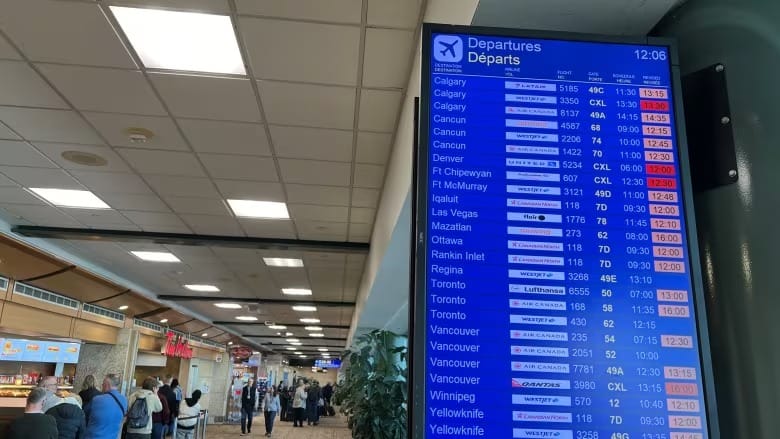Airlines can be required to provide compensation for international disruptions: Supreme Court
Unanimous ruling dismisses appeal from airlines that said passenger protections violate international law

The Supreme Court of Canada has ruled that airlines may be required to compensate passengers for certain international flight disruptions, affirming that Canada's passenger protection regulations do not violate international law.
In a unanimous decision, all nine justices rejected an appeal from two airline associations and several air carriers serving Canadian and international airports. The airlines argued that the Air Passenger Protection Regulations, introduced in 2019, conflicted with the Montreal Convention, an international treaty adopted by Canada in 2001.
These regulations impose obligations on airlines regarding flight delays, cancellations, denied boarding, and lost or damaged luggage. Airlines must explain delays and cancellations, offer services such as food, drinks, and restroom access during extended runway delays, and refund baggage fees if luggage is lost or damaged, in addition to any compensation required under the Montreal Convention.
The airlines contended that Article 29 of the Montreal Convention, which states that "any action for damages" against an airline is governed by the treaty’s liability conditions, means the treaty exclusively regulates passenger compensation. They argued that the 2019 regulations violated this exclusivity by imposing additional compensation requirements.
The court examined whether the fixed financial compensation under the 2019 regulations could coexist with the Montreal Convention, which only governs compensation for international flights to and from Canada.
In the ruling, Justice Malcolm Rowe clarified that the term "action" in the Montreal Convention refers to a legal proceeding seeking damages specific to a case. He noted that compensation under the Air Passenger Protection Regulations is distinct from individualized damage awards, as it provides standardized compensation to all affected passengers, regardless of specific harm.
Justice Rowe explained that Canada’s regulations function as a "consumer protection scheme" that mandates compensation for flight delays, cancellations, or denied boarding based on the length of the delay, as long as the disruption was within the airline's control and not due to safety concerns.
Transport Minister Anita Anand welcomed the decision, affirming the government's stance that "passengers need protections." A coalition of advocacy groups, including the Council of Canadians with Disabilities and the Public Interest Advocacy Centre, also praised the ruling, stating that it preserves both standardized compensation and the right for passengers to seek individualized remedies under the Montreal Convention.
However, industry groups, including the International Air Transport Association and Airlines for America, expressed disappointment with the ruling. They argued that additional compensation requirements could raise ticket prices, making air travel less affordable for price-sensitive travelers.





